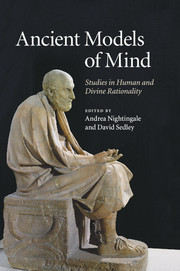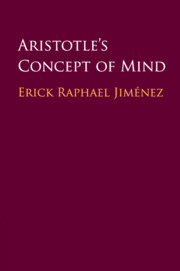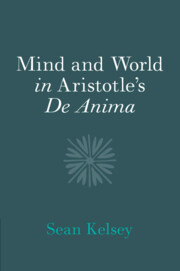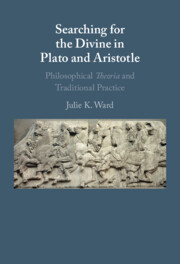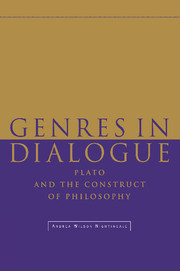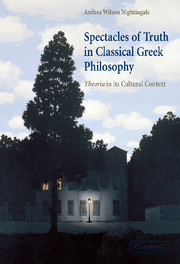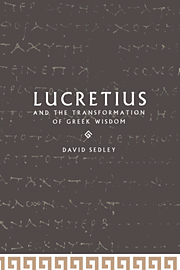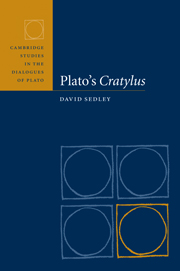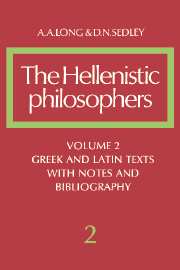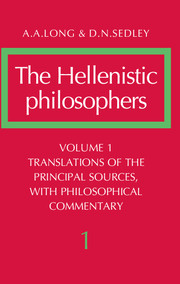Ancient Models of Mind
Studies in Human and Divine Rationality
$41.99 (C)
- Editors:
- Andrea Nightingale, Stanford University, California
- David Sedley, University of Cambridge
- Date Published: May 2015
- availability: Available
- format: Paperback
- isbn: 9781107525955
$
41.99
(C)
Paperback
Other available formats:
Hardback, eBook
Looking for an examination copy?
This title is not currently available for examination. However, if you are interested in the title for your course we can consider offering an examination copy. To register your interest please contact [email protected] providing details of the course you are teaching.
-
How does god think? How, ideally, does a human mind function? Must a gap remain between these two paradigms of rationality? Such questions exercised the greatest ancient philosophers, including those featured in this book: Socrates, Plato, Aristotle, the Stoics and Plotinus. This volume encompasses a series of studies by leading scholars, revisiting key moments of ancient philosophy and highlighting the theme of human and divine rationality in both moral and cognitive psychology. The volume is a tribute to A.A. Long, and reflects multiple themes of his own work.
Read more- Brings together cutting-edge research in ancient cognitive and moral psychology
- Contributes to the reconstruction of the legacy of Socrates, enriching the recent flow of scholarship on the Socratic tradition
- Includes important discussions of Stoicism
Reviews & endorsements
"....nice collection.... recommendable without any doubt.... some papers would be useful for students and beginners because of their general presentations. Others are of interest for specialists and researchers...."
--Robert Zaborowski, Ph.D., University of Warmia and Mazury & Polish Academy of Sciences, Metapsychology Online Reviews
Customer reviews
Not yet reviewed
Be the first to review
Review was not posted due to profanity
×Product details
- Date Published: May 2015
- format: Paperback
- isbn: 9781107525955
- length: 262 pages
- dimensions: 228 x 153 x 15 mm
- weight: 0.4kg
- availability: Available
Table of Contents
1. Plato on aporia and self-knowledge Andrea Wilson Nightingale
2. Cross-examining happiness: reason and community in the Socratic dialogues of Plato Sara Ahbel-Rappe
3. Inspiration, recollection, and mimesis in Plato's Phaedrus Kathryn A. Morgan
4. Plato's Theaetetus as an ethical dialogue David Sedley
5. Divine contemplating mind Allan Silverman
6. Aristotle and the history of Skepticism Alan Code
7. Stoic selection: objects, actions, and agents Stephen White
8. Beauty and its relation to goodness in Stoicism Richard Bett
9. How dialectical was Stoic dialectic? Luca Castagnoli
10. Socrates speaks in Seneca, De vita beata 24-28 James Ker
11. Seneca's Platonism: the soul and its divine origin Gretchen Reydams-Schils
12. The status of the individual in Plotinus Kenneth Wolfe
A. A. Long: Publications 1963–2009
Index locorum
General index.
Sorry, this resource is locked
Please register or sign in to request access. If you are having problems accessing these resources please email [email protected]
Register Sign in» Proceed
You are now leaving the Cambridge University Press website. Your eBook purchase and download will be completed by our partner www.ebooks.com. Please see the permission section of the www.ebooks.com catalogue page for details of the print & copy limits on our eBooks.
Continue ×Are you sure you want to delete your account?
This cannot be undone.
Thank you for your feedback which will help us improve our service.
If you requested a response, we will make sure to get back to you shortly.
×
